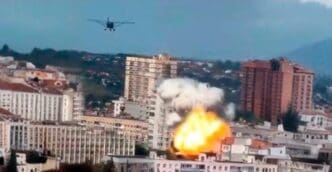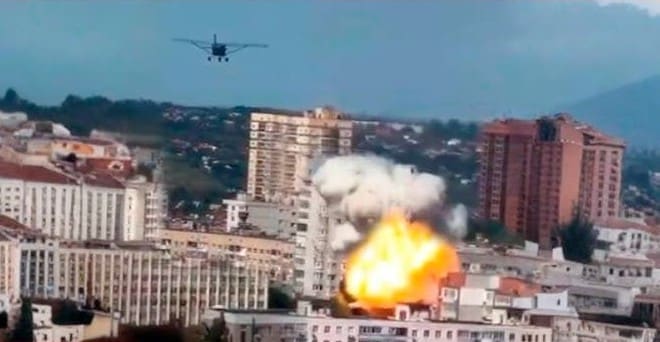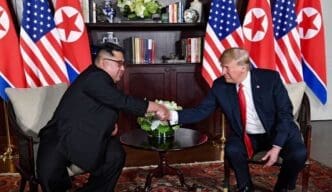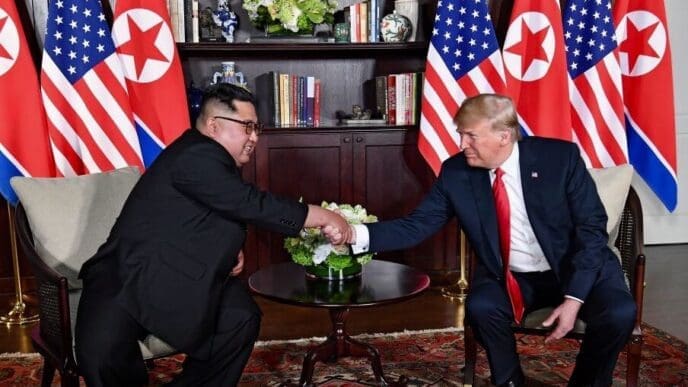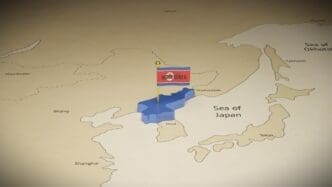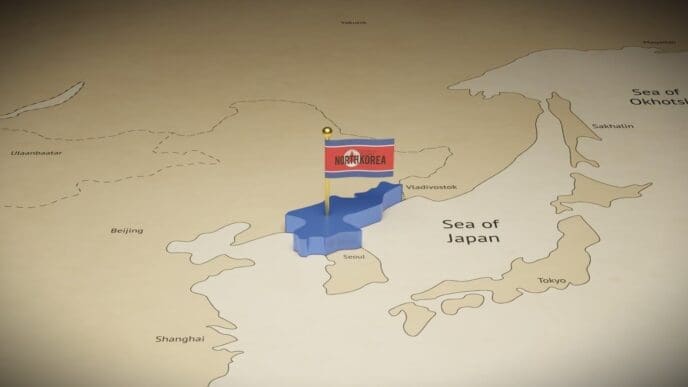South Korea’s military recently fired warning shots at North Korean soldiers who crossed the border, marking the first such incident in nearly a year. According to government officials in Seoul, around 10 North Korean soldiers, some armed, crossed into the eastern section of the Demilitarized Zone (DMZ) at 5 p.m. The soldiers returned to North Korea following South Korea’s broadcasted warnings and warning shots.
The DMZ, a remnant of the Korean War from 1950 to 1953, stretches 248 kilometers in length and 4 kilometers in width. It is considered one of the most perilous border regions globally, with approximately 2 million landmines scattered throughout. The motivation behind the North Korean soldiers’ border crossing remains uncertain. However, South Korean media have speculated that the troops may have inadvertently entered South Korean territory during a patrol related to frontline activities.
In October, North Korea announced plans to bolster its border defenses, citing perceived “confrontational hysteria” from South Korea and the United States. By late March, South Korea’s military reported that North Korea was working on reinforcing barbed wire fences along the border. This recent incident follows a series of similar crossings last June, which South Korea attributed to unclear military border signage rather than deliberate actions.
Tensions between the two Koreas remain high. North Korean leader Kim Jong-un continues to assert his country’s nuclear capabilities and has committed troops in support of Russia’s invasion of Ukraine. Concurrently, South Korea is grappling with a political crisis triggered by former President Yoon Suk-yeol’s declaration of martial law last December. The country’s highest court recently removed Yoon from office following his impeachment, with new elections scheduled for early June.
Understanding the Impact
- The incident highlights ongoing tensions and the fragile peace between North and South Korea, affecting regional stability and security.
- Residents near the DMZ may experience heightened anxiety due to the potential for military escalation and the presence of landmines.
- South Korea’s political instability, compounded by the recent impeachment, could influence its diplomatic strategies and defense policies.
- International relations may be strained as global powers monitor the situation, potentially impacting economic and military alliances.
- Local economies in border areas could suffer from decreased tourism and investment due to perceived instability and safety concerns.
